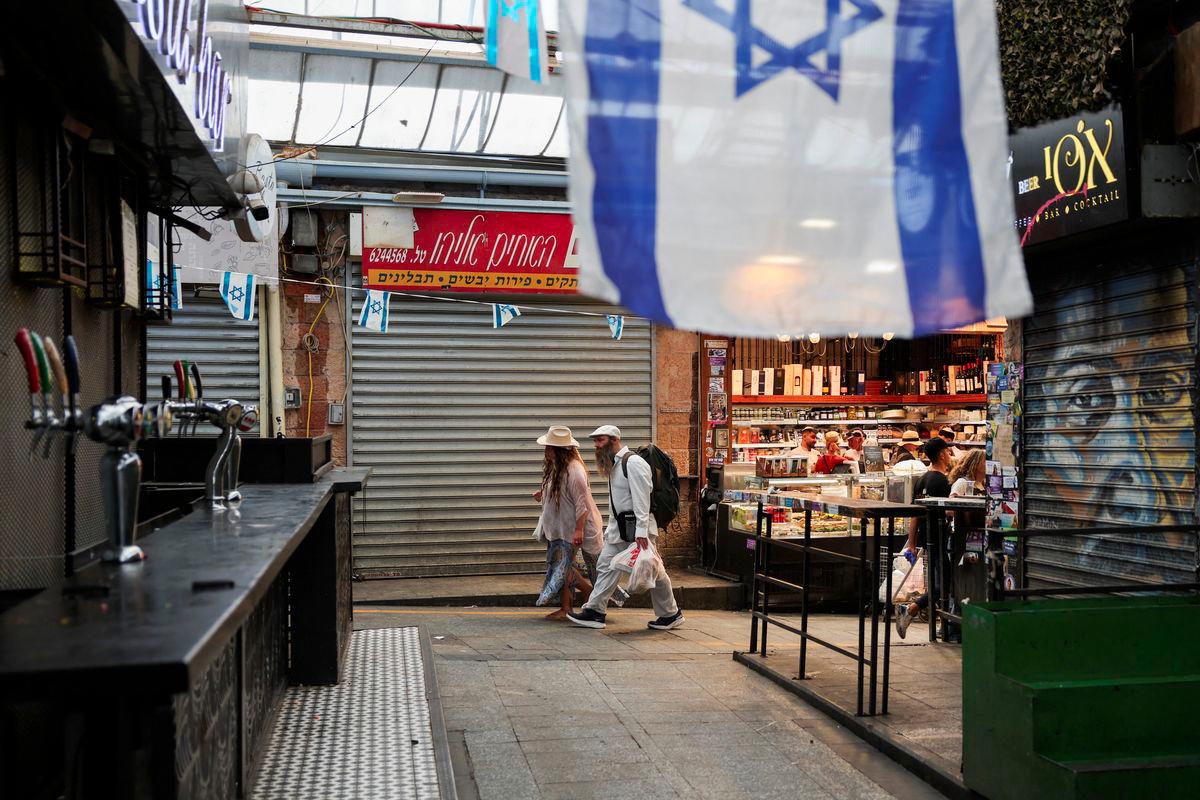TEL AVIV: The streets of Tel Aviv were calm on Friday morning, even as the country's leaders warned the public to brace for Iranian retaliation after Israel launched a widescale attack on Iran.
The military closed schools nationwide and banned public gatherings, cancelling the annual Tel Aviv Pride parade, which normally attracts tens of thousands of revellers to the city.
“We’ve already been in this scenario twice,“ said 31-year-old Uri, sitting on a bench outside a supermarket, questioning whether to open his restaurant or have to throw out the day’s food.
“I don’t really care, honestly. I’ll just go to a shelter and I’ll be okay,“ he said, when asked whether he had any concerns about his own safety.
Iran fired hundreds of drones and ballistic missiles at Israel in two attacks last year in response to Israeli strikes, rattling the Israeli public but causing only modest damage.
Tehran has vowed retaliation for Israel's early morning attack on Friday on Iranian military and nuclear facilities that killed several top commanders. Israel said it was working to intercept 100 drones that were launched by Iran, but had not reached Israel.
The Israeli public has been told to be prepared to spend long hours in bomb shelters, with the government warning that it would be carrying out a prolonged attack against its arch-foe.
Benjamin Netanyahu, Israel's longest-serving prime minister, invoked the horrors of the Nazi Holocaust during World War Two to justify his decision to attack Iran, framing the strikes as a decisive step to protect Israel from a future existential threat.
Over the past year, Israel has openly clashed with Tehran, firing rocket salvos deep into Iran. After militant group Hamas launched a surprise attack on Israeli communities in October 2023, Israel dismantled many of Iran's allies, including Hamas in Gaza and Hezbollah in Lebanon.
“Iran? That’s the first place we need to attack if you ask me,“ said Aviv, 38, adding he hoped the strikes would lead to the release of 53 mostly Israeli hostages held by Hamas in Gaza.
In Gaza, which has been reduced to a wasteland by Israel's devastating campaign, some hoped that the strike on Iran might pave the way for an end to the war in the coastal enclave.
“We hope that this time the Iranians will push for a comprehensive solution,“ said Abu Abdallah, a Palestinian businessman displaced to the south of Gaza.
STOCKING UP
Across Israel, supermarkets and some cafes remained open, although some businesses chose to keep their doors shuttered. Shoppers stocked up on food and bottled water, prompting long queues at checkouts.
“My fridge is empty,“ said 41-year-old Noah as she made her way to a supermarket. The mother of two said she was due to celebrate their wedding anniversary with her husband at a hotel.
Noah said she was worried about the severity of any potential retaliatory strike, adding that people were asking whether the bomb shelters in their apartment buildings would be strong enough to withstand it, or if it might be safer to seek refuge underground.
The strike on Iran comes as Netanyahu's right-wing coalition has faced growing domestic and international pressure over the Gaza war, now in its 21st month.
“The way the government is handling things is horrible,“ Noah said, adding that she condemned the decision to strike Iran, fearing that it will put the country in further danger.
“Because I feel like we have reached the top end of the scale, like this is serious this time. It feels like okay, they have nothing to lose,“ she said.
In Jerusalem, others expressed support for the decision.
“I am very happy for this. We were waiting for this,“ said 66-year-old Oral Liral.
“Am Yisrael Chai. We are strong. We will be here. It’s our country,“ she said, using a Hebrew expression of perseverance that means “the people of Israel live”.









